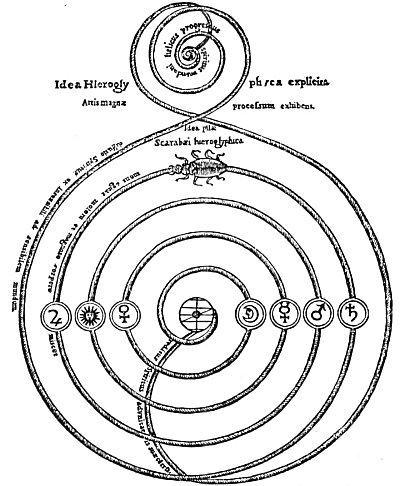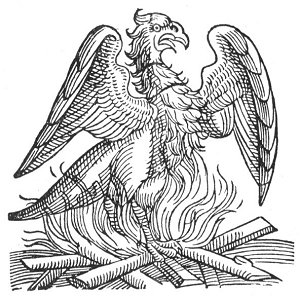p. 22
IN the Ancient Orient, all religion was more or less a mystery and there was no divorce from it of philosophy. The popular theology, taking the multitude of allegories and symbols for realities, degenerated into a worship of the celestial luminaries, of imaginary Deities with human feelings, passions, appetites, and lusts, of idols, stones, animals, reptiles. The Onion was sacred to the Egyptians, because its different layers were a symbol of the concentric heavenly spheres. Of course the popular religion could not satisfy the deeper longings and thoughts, the loftier aspirations of the Spirit, or the logic of reason. The first, therefore, was taught to the initiated in the Mysteries. There, also, it was taught by symbols. The vagueness of symbolism, capable of many interpretations, reached what the palpable and conventional creed could not. Its indefiniteness acknowledged the abstruseness of the subject: it treated that mysterious subject mystically: it endeavored to illustrate what it could not explain; to excite an appropriate feeling, if it could not develop an adequate idea; and to make the image a mere subordinate conveyance for the conception, which itself never became obvious or familiar.
Thus the knowledge now imparted by books and letters, was of old conveyed by symbols; and the priests invented or perpetuated a display of rites and exhibitions, which were not only more attractive to the eye than words, but often more suggestive and more pregnant with meaning to the mind.
Masonry, successor of the Mysteries, still follows the ancient manner of teaching. Her ceremonies are like the ancient mystic shows,–not the reading of an essay, but the opening of a problem, requiring research, and constituting philosophy the arch-expounder. Her symbols are the instruction she gives. The lectures are endeavors, often partial and one-sided, to interpret these symbols. He who would become an accomplished Mason must not be content merely to hear, or even to understand, the lectures; he
p. 23
must, aided by them, and they having, as it were, marked out the way for him, study, interpret, and develop these symbols for himself.
* * * * * * Though Masonry is identical with the ancient Mysteries, it is so only in this qualified sense: that it presents but an imperfect image of their brilliancy, the ruins only of their grandeur, and a system that has experienced progressive alterations, the fruits of social events, political circumstances, and the ambitious imbecility of its improvers. After leaving Egypt, the Mysteries were modified by the habits of the different nations among whom they were introduced, and especially by the religious systems of the countries into which they were transplanted. To maintain the established government, laws, and religion, was the obligation of the Initiate everywhere; and everywhere they were the heritage of the priests, who were nowhere willing to make the common people co-proprietors with themselves of philosophical truth.
Masonry is not the Coliseum in ruins. It is rather a Roman palace of the middle ages, disfigured by modern architectural improvements, yet built on a Cyclopæan foundation laid by the Etruscans, and with many a stone of the superstructure taken from dwellings and temples of the age of Hadrian and Antoninus.
Christianity taught the doctrine of FRATERNITY; but repudiated that of political EQUALITY, by continually inculcating obedience to Cæsar, and to those lawfully in authority. Masonry was the first apostle of EQUALITY. In the Monastery there is fraternity and equality, but no liberty. Masonry added that also, and claimed for man the three-fold heritage, LIBERTY, EQUALITY, and FRATERNITY.
It was but a development of the original purpose of the Mysteries, which was to teach men to know and practice their duties to themselves and their fellows, the great practical end of all philosophy and all knowledge.
Truths are the springs from which duties flow; and it is but a few hundred years since a new Truth began to be distinctly seen; that MAN IS SUPREME OVER INSTITUTIONS, AND NOT THEY OVER HIM. Man has natural empire over all institutions. They are for him, according to his development; not he for them. This seems to us a very simple statement, one to which all men, everywhere, ought to assent. But once it was a great new Truth,—not

Moe is the founder of GnosticWarrior.com. He is a father, husband, author, martial arts black belt, and an expert in Gnosticism, the occult, and esotericism.






